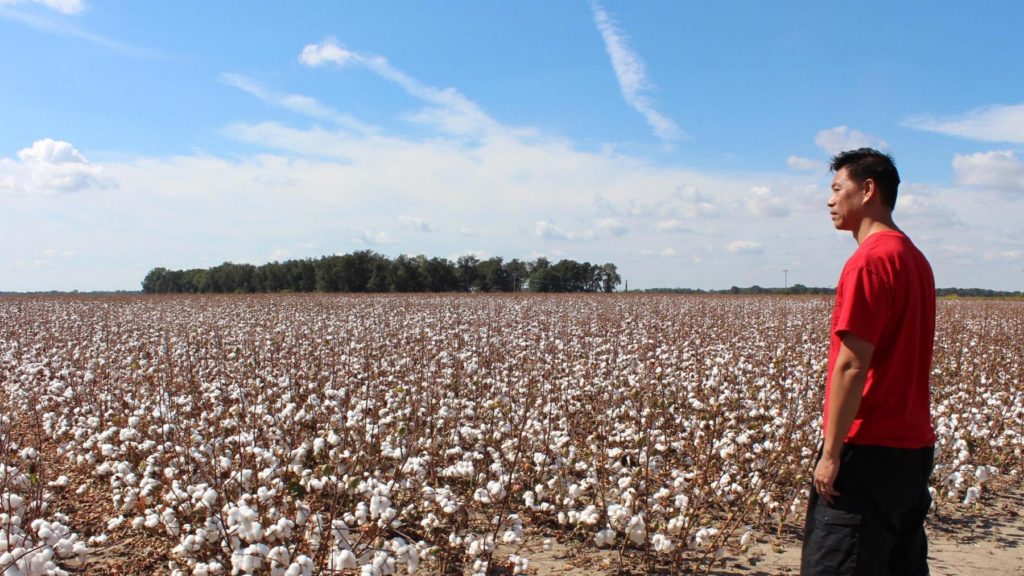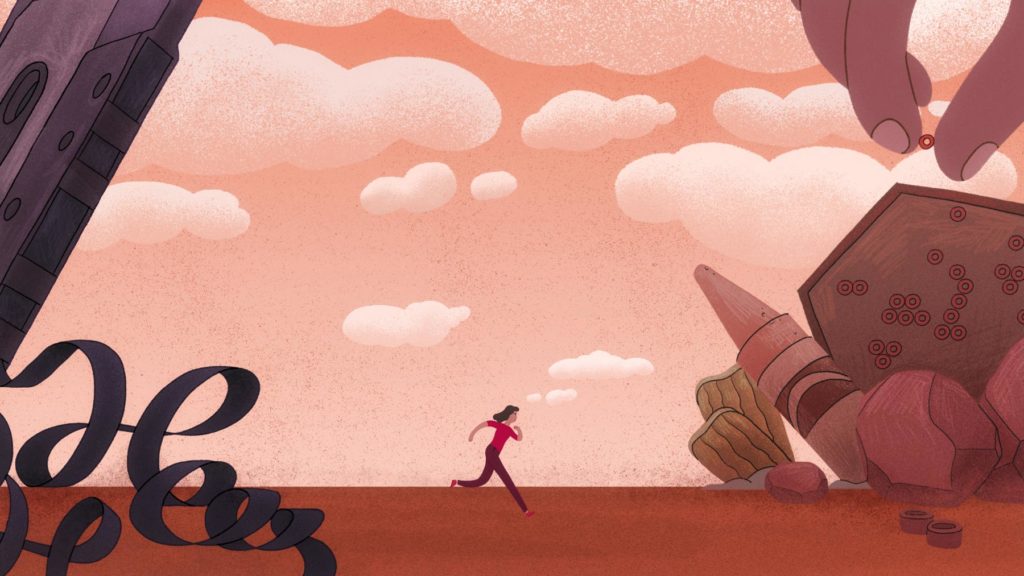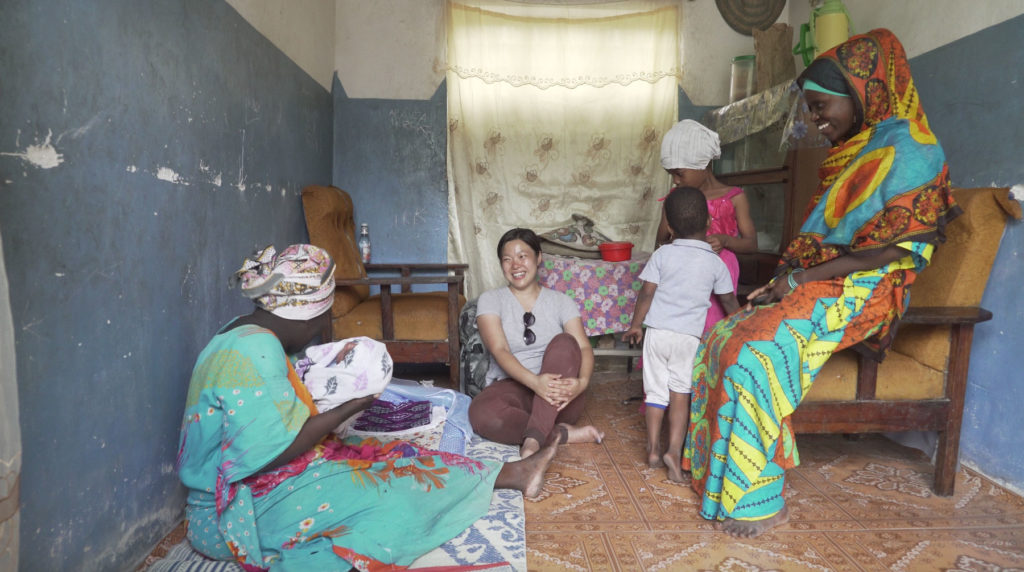How Tracing His Family Roots Led Baldwin Chiu To…. Mississippi?
Baldwin Chiu was just digging into his family history a little, expecting his recent family roots to lead him somewhere in east. Instead, he finds himself taking a sharp turn south. Mississippi, that is. What started as a simple inquiry about his family history opened up to a trove of untold history. In “Far East Deep South,” we follow Chiu as he uncovers the history of his family, and of larger Chinese-American communities, more deeply intertwined with the story of America than his AP history books ever let on. Chiu discussed with PAAFF what it was like discovering his family and his community’s history far back in the U.S., the shared histories of segregation between Chinese-Americans and Black Americans, and how he is pushing to get his film into classrooms to change the face of American history. This film has expanded monumentally from a short documentary into a feature, not to mention an education initiative. Tell me about the moment you knew this was to become a bigger project and what it’s been like expanding. Baldwin Chiu: It wasn’t necessarily one moment but more like a snowball of moments. When we were touring with our short documentary, “Finding Cleveland”, audience questions kept coming and we kept researching and discovering more. We were discovering so much history that we never learned in our AP History classes in California. The constant wave of audiences coming out to support our short film gave us an indication that there was a hunger and demand for stories like ours to be told. Fairly early on, it was clear that there was still more history to be told beyond our short and we ended discovering even more family revelations that were life-changing. Expanding the story was challenging in that there was so much history to cover, but we had to pick and choose what we could include in the context of our film as it related to the family story. We also realized that this was not just a family story. It was also the story of America. One challenge you faced was making sure in telling your family’s history, you didn’t diminish or perpetuate tensions between Black and Chinese-American communities. How did you navigate this and what you found surprising in the process? Baldwin Chiu: We were actually very surprised to discover that in the south during this Jim Crow era, that the African American and Chinese American communities had a very favorable relationship with one another. Growing up in California and knowing the history in the major cities, especially, were fraught with tension between the black and Asian community, we were very surprised to learn about this. Jim Crow laws preventing Chinese and Blacks from living in white neighborhoods led to these two communities developing a symbiotic relationship. We felt it was important to hear from the Black community first hand and not just go by what the white or Chinese Americans recounted. At least in the 1800s and early 1900s, there was a respect between the black and Chinese community in the South that we don’t always see today. We consulted with our African American friends, historians, and social activists regarding these topics to make sure we weren’t diminishing their story but instead, adding to their story to show our shared history. We wanted this shared history to make Black history more relevant to Asians. Tell me about what you learned in having to really focus in on making your film not only historically accurate but racially sensitive to both Black and Chinese-American communities? Baldwin Chiu: When we were consulting other Black filmmakers, historians and residents in the Mississippi Delta, we learned that there were certain points of sensitivity and it affected how we edited our film. For instance, we took out any references anyone made about Chinese and their work ethic. It was brought to our attention that this could be misinterpreted to imply that only Chinese had a good work ethic and that the Blacks didn’t, even though we weren’t making that comparison at all. There is sensitivity to the Asian model minority myth from both communities too. We wanted to minimize anything that could be misconstrued or would continue to perpetuate stereotypes. Tell me about what it’s been like using your film to include Chinese-Americans in U.S. History. Baldwin Chiu: It’s been really encouraging to see progress made in terms of teachers starting to use our film in schools and making US history lessons on segregation more inclusive of the Asian experience. Recently, a high school history class in Oregon watched our film and it really changed the perspective of the students who were predominantly non-Asian. Many of the students commented how they never knew that the Chinese faced so much discrimination in this country like being subject to Jim Crow laws and the Chinese Exclusion Act. We’ve also had a professor at a university in Missouri change his US history syllabus each semester to always include a discussion about the Chinese and the Mississippi Delta when they cover the American South. Our goal Is to see the way US history is taught in schools to be more inclusive of the Asian experience and those of other underrepresented groups in our history books, not just to be diverse, but to be accurate. We just signed on with New Day Films for our educational distribution so we hope that leads to our film being shown at more schools. Tell me about some memorable conversations this film has sparked for you. Baldwin Chiu: We’ve had a lot of people apologizing to us about asking the question, “Where are you really from?” after they’ve seen our film, I think we’ve made a lot of people that are not Asian think about the implicit bias that people have towards those of us of Asian descent. There is a presumption that someone with an Asian face is not from the US or maybe doesn’t even belong here. We showed an early version of our
How Tracing His Family Roots Led Baldwin Chiu To…. Mississippi? Read More »



